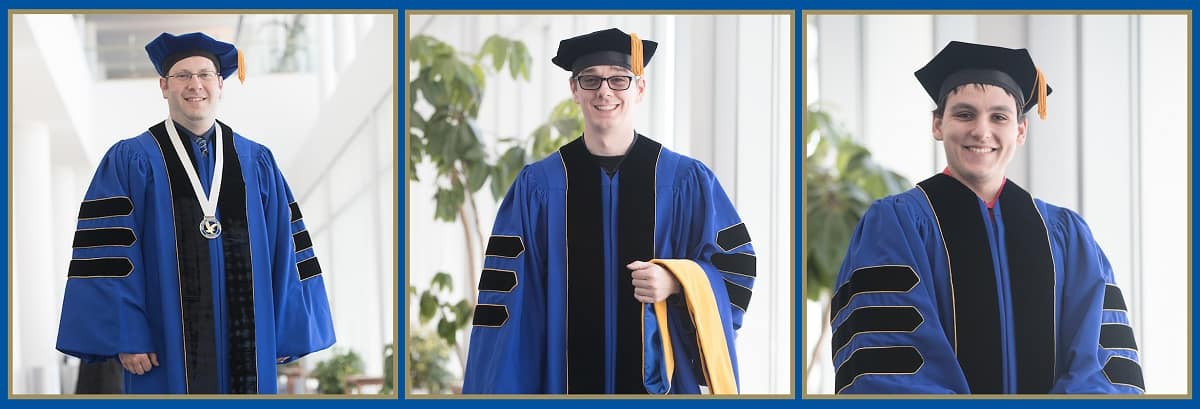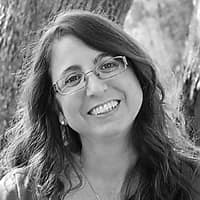Doctoral Graduates Make Impact in Video Game Design, Missile Systems and Aviation Industries

Determining what brings people enjoyment may seem like a simple task, but it’s a topic that has intrigued educators and philosophers as far back as the third century BC. It’s also a concept that the video game industry would like to understand further in order to better design their products and increase usage. But other industries are also in search of the magical key to enjoyment to ensure a more productive workforce.
An Embry-Riddle Aeronautical University Ph.D. Human Factors graduate from the Daytona Beach Campus decided to take on the challenge of quantifying enjoyment as part of his dissertation. Through extensive research, expert input, data analysis and thousands of surveys, Shayn Savage Davidson has developed a new multi-dimensional measure of enjoyment called the ENJOY Scale. The scale or survey consists of five areas with a total of 25 questions assessing how the person filling out the survey feels about, or enjoys, a particular activity.
Davidson, who will be working in market research in the video game industry, is one of three Embry-Riddle students who received doctorate degrees on Monday. Derek Hoffman received a Ph.D. in Engineering Physics and Robert L. Thomas, assistant professor in Embry-Riddle’s Aeronautical Science Department, received a Ph.D. in Aviation.
In Davidson’s dissertation, A Multi-Dimensional Model of Enjoyment: Development and Validation of an Enjoyment Scale, he outlines how he determined enjoyment is largely based on five factors: pleasurable feelings and sensations (Pleasure), feeling connected to other people (Relatedness), feeling capable (Competence), being challenged and feeling like you are improving (Challenge/Improvement) and being pulled into the activity (Engagement).
Davidson said the enjoyment survey can be used across any industry, whether evaluating aviation controls, video games, a new medical device or a particular job.
“Enjoyment is positively related to energy and negatively related to stress. If I enjoy my work, I’m not only going to have more energy, but I’m going to perform better and will be less stressed,” Davidson said.
As part of Davidson’s study, he not only developed a scale and survey of questions that companies could use, but identified activities that bring people the most enjoyment. Hobbies, events and entertainment scored the highest on the enjoyment scale, with jobs and travel at the bottom. He’s hoping companies will find his survey useful in improving their products.
Ph.D. Engineering Physics
Derek Hoffman, Ph.D., will leave Embry–Riddle to work for Raytheon Missile Systems in Arizona, a subsidiary of Raytheon Company, a technology and innovation leader specializing in defense, civil government and cybersecurity solutions. Hoffman will join Raytheon as a senior controls engineer involved with guidance system development.
“My passion for controls engineering stems from an earnest desire to innovate aerospace industries, attempting to solve challenges that are still present today,” Hoffman said.
As a graduate student, he worked as a research and teaching assistant in the Department of Physical Sciences and worked in the Control Design Lab in the College of Arts and Sciences.
In his dissertation, Nonlinear Control of Underactuated and Constrained Systems, he examines modeling and control of unmanned aerial vehicles, space robots and spacecraft. His works seeks to improve simulation accuracy and thus efficiency of control design and use.
“The main advantage that industry could use from this research is a reduced computational burden for simulations,” Hoffman said.
Ph.D. in Aviation
Assistant Professor Bob Thomas, Ph.D., focused his doctoral research on the Effect of Active Learning on Instrument Rated Pilots’ Knowledge and Self-Efficacy. The study validated the potential of using at-home personal computer scenario-based simulation for instrument currency. Sixty-two non-current instrument rated pilots participated in the at-home training, which included reading FAA material and using a PC-based flight simulation program to fly a series of instrument approaches and to make in-flight decisions.
Thomas found that using active learning through personal computer-based flight scenarios is an effective method of refresher training for instrument rated pilots who are not instrument current.
Thomas, who received a master’s degree in Aeronautics from Embry-Riddle, has an Airline Transport Pilot Certificate and Flight Instructor Certificate. He has been at the Daytona Beach Campus since 2007, where he started as an instructor pilot in the Flight Department. Thomas is currently supervising 25 tutors in the department’s Aviation Learning Center and he is occasionally still a check and flight instructor.
“Having a Ph.D. in Aviation will help me as an assistant professor in the Aeronautical Science Department by giving me a solid research background to conduct and assist in research studies that will benefit aviation and pilot training,” Thomas said.

 Deborah Circelli
Deborah Circelli